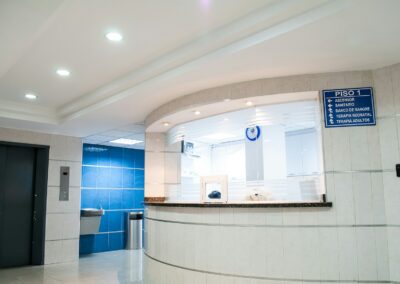Enhancing Clinical Efficiency through CDSS and EHR Integration
Streamlining Patient Care with Advanced Technology
In regions like Riyadh and Dubai, where healthcare infrastructure is rapidly advancing, the implementation of integrated CDSS and EHR systems is pivotal. These technologies provide clinicians with up-to-date patient data, medical histories, and evidence-based recommendations at the point of care. This not only improves the quality of care but also reduces the likelihood of medical errors. For instance, a physician in a busy hospital in Riyadh can instantly access a patient’s complete medical history and receive tailored treatment suggestions based on the latest clinical guidelines, thus streamlining patient care and enhancing outcomes
The integration of Clinical Decision Support Systems (CDSS) with Electronic Health Records (EHR) systems is revolutionizing healthcare delivery by providing real-time access to patient information and relevant clinical guidelines during patient encounters. This seamless integration enhances the efficiency and accuracy of clinical decision-making, which is critical in dynamic healthcare environments such as those in Saudi Arabia and the UAE. By utilizing advanced technologies like Artificial Intelligence (AI) and Blockchain, CDSS integrated with EHR systems can offer comprehensive support to healthcare professionals, ensuring that they make informed decisions quickly and accurately.
Driving Change Management in Healthcare
Successful implementation of integrated CDSS and EHR systems requires robust change management strategies. Change management is essential to address the challenges that come with adopting new technologies and to ensure that healthcare professionals are well-equipped to use these systems effectively. In Saudi Arabia and the UAE, where healthcare sectors are undergoing significant digital transformations, structured change management approaches are vital to facilitate smooth transitions and to harness the full potential of these advanced technologies.
Engaging stakeholders at all levels is a key component of effective change management. In Dubai, for instance, involving doctors, nurses, and administrative staff in the planning and implementation phases of CDSS and EHR integration helps address concerns and gather valuable insights. This inclusive approach fosters a sense of ownership and acceptance among healthcare providers, making them more likely to embrace the new systems and leverage their capabilities to improve patient care.
Leveraging AI and Blockchain for Enhanced Security and Efficiency
The integration of AI and Blockchain technologies within CDSS and EHR systems brings a new level of security and efficiency to healthcare operations. AI-driven CDSS can analyze complex datasets to provide precise diagnostic and treatment recommendations, while Blockchain ensures that patient data is securely stored and transmitted, addressing privacy concerns. These technologies are particularly beneficial in healthcare systems like those in the UAE and Saudi Arabia, where there is a strong emphasis on innovation and security.
AI enhances the capabilities of CDSS by offering predictive analytics and personalized treatment plans. For instance, in a hospital in Dubai, AI can analyze patient data in real-time to identify potential health risks and suggest preventive measures, thereby improving patient outcomes. Additionally, AI-driven CDSS can continuously learn and adapt, ensuring that healthcare providers always have access to the most current and relevant information.
Blockchain technology, on the other hand, provides a secure and transparent framework for managing patient data. In Saudi Arabia, where data security is a top priority, Blockchain can enhance trust and compliance by ensuring that patient records are immutable and accessible only to authorized personnel. By integrating Blockchain with CDSS and EHR systems, healthcare organizations can create a robust and secure environment for managing patient information, thereby fostering greater confidence among patients and providers alike.
Project Management in Healthcare Technology Implementation
Project management is a critical component of successful CDSS and EHR system integration in healthcare settings. Effective project management ensures that these projects are delivered on time, within budget, and to the desired quality standards. In regions like Saudi Arabia and the UAE, where healthcare infrastructure is rapidly expanding, robust project management practices are essential for the successful implementation of new technologies.
Key project management principles, such as planning, monitoring, and risk management, play a crucial role in integrating CDSS with EHR systems. Healthcare organizations in Riyadh can leverage these principles to develop detailed project plans, set clear objectives, and establish realistic timelines. By closely monitoring progress and proactively addressing risks, project managers can ensure that CDSS and EHR implementations stay on track and deliver the expected benefits.
Moreover, effective project management involves collaboration and coordination among diverse stakeholders, including IT professionals, healthcare providers, and executive leaders. In Dubai, healthcare organizations can utilize project management frameworks to facilitate cross-functional collaboration, ensuring that all team members work towards common goals. By fostering a collaborative and organized approach to integrating CDSS with EHR systems, healthcare providers can enhance operational efficiency, improve patient outcomes, and drive business success.
#CDSS #EHRSystems #HealthcareTechnology #DigitalTransformation #ArtificialIntelligence #Blockchain #ChangeManagement #ExecutiveCoaching #SaudiArabiaHealthcare #UAEHealthcare #Riyadh #Dubai























